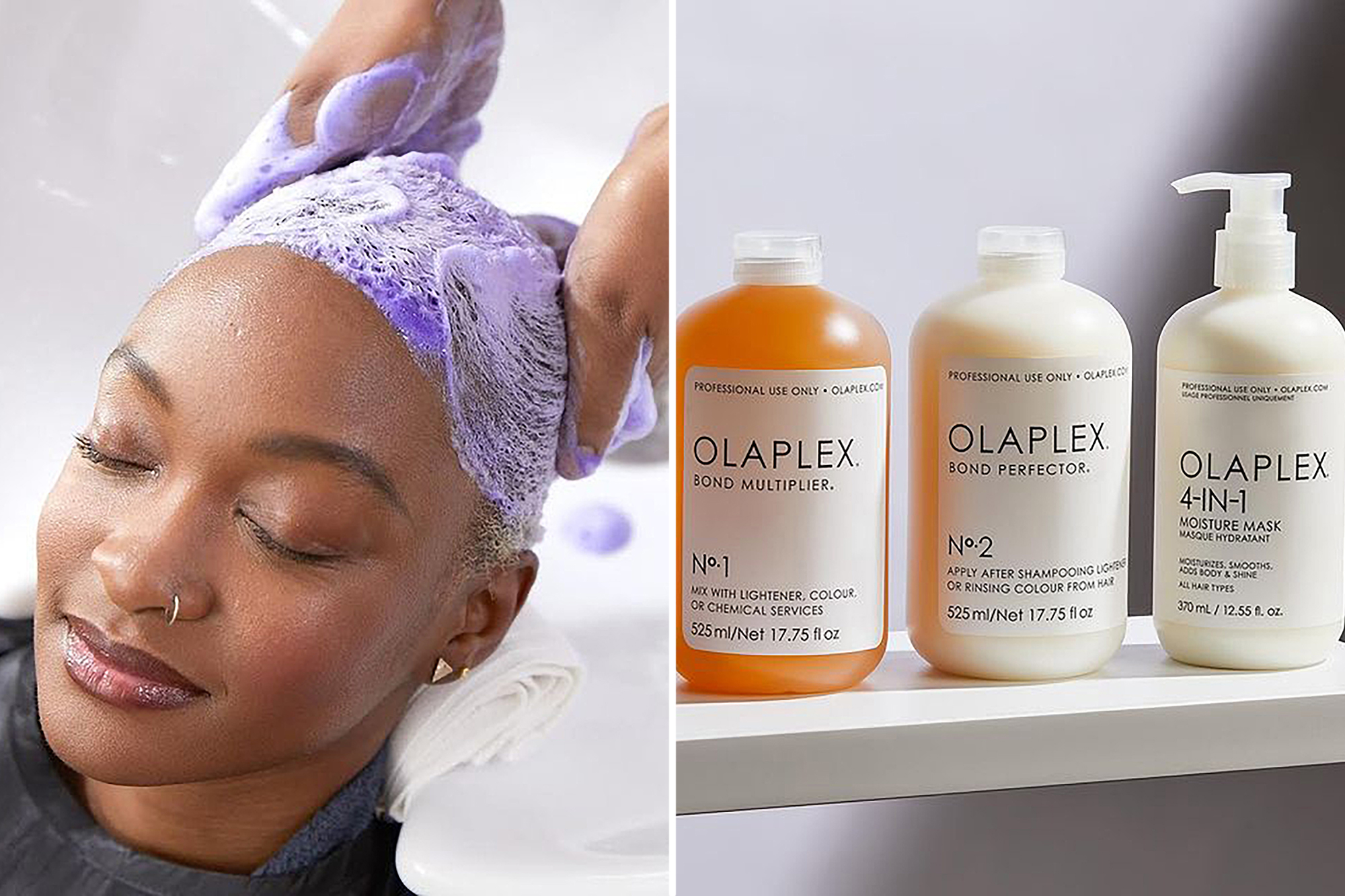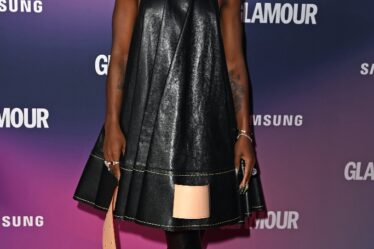
Images and Article from nypost.com.
Olaplex is a staple at trendy upscale salons, but hair-raising rumors that a now-banned ingredient causes infertility have racked up 30 million views on TikTok.
The brand — perhaps most recognized as one of the products used during the coloring process — has gone viral following reports that it’s being banned in Europe. Since its introduction at salons, the complete system line is now available for at-home use and comes in eight different products designed to work together to repair hair that’s been damaged by bleach.
Olaplex credits their patented ingredient bis-aminopropyl diglycol dimaleate, which they say is the key to turning dry, weak strands into plump locks.
So, it came as a shock to the hair-obsessed that Olaplex would be revealed as an infertility risk — not due to its revolutionary compound but a simple fragrance additive called butylphenyl methylpropional, or simply lilial.
It was first revealed when health officials in the European Union, as well as the United Kingdom, announced a ban on one ingredient found within Olaplex product, its No. 3 Hair Perfector mask, pointing to research that shows lilial could lead to infertility. The product is arguably their most popular in the line — evidenced by the more than 30 million views tied to the social media hashtag #olaplexno3 on TikTok alone.
The news went viral on the video mashup platform as beauty influencers reported said findings, such as TikToker Hasini Kay who cited the UK’s legislative web engine as her source.
According to Kay, “some sources say it’s already being reformulated,” she told followers. “If not, they’re likely to reformulate before the ban comes into effect.”
And indeed, according to the brand, they’ve done exactly that.
“In September 2020, the EU regulatory authority announced their intent to Butylphenyl methylpropional commonly referred to as ‘lillial’ phased out by March of 2022. At Olaplex, lilial was previously used in small amounts as a fragrance in No. 3 Hair Perfector. It is not an active or functional ingredient,” Olaplex told The Post in a statement.
“While this phase out is limited to the EU, out of an abundance of caution, Olaplex proactively removed lillial from our No.3 Hair Perfector globally. Since January 2022, Olaplex no longer sold products using Lillial in the UK or EU,” they continued.
“Cosmetic experts at The Cosmetic Regulator have clarified that lilial is usually present in formulations at a concentration of 0.1 per cent or less and ‘is not enough to directly impact fertility’,” they added. “Olaplex previously used 0.0119% as a fragrance and as an inactive and non-functional ingredient in OLAPLEX No. 3 rinse out product.”
Olaplex’s chief scientist Lavinia Popescu also appeared on Instagram this week to explain the controversy.
“We decided to take lilial out from our products — not only in the EU, where in this moment it’s banished. We decided to take it out globally,” she concluded. “In this moment, Olaplex, it’s lilial free.”
Studies of lilial have indicated that it may cause adverse effects when ingested by animals — meaning there are no such studies that can definitely say how it affects humans who rub it on their heads. Moreover, the ingredient has been on the EU’s restriction list for a number of years, though only now is the ban taking effect.
Some on social media, including LA cosmetic chemist Javon Ford, have already pointed out that lilial doesn’t currently appear on the ingredients list, according to the website INCIdecoder. Prior to 2018, however, the ingredient had shown on No. 3’s label, according to the internet archive Wayback Machine.
Ford’s findings suggest that Olaplex has already reformulated to “get ahead of the EU ban and phase out the ingredient.” Added Ford: “If Olaplex is working for you without issue, no, you do not have to discontinue use.”
Article shared from nypost.com



